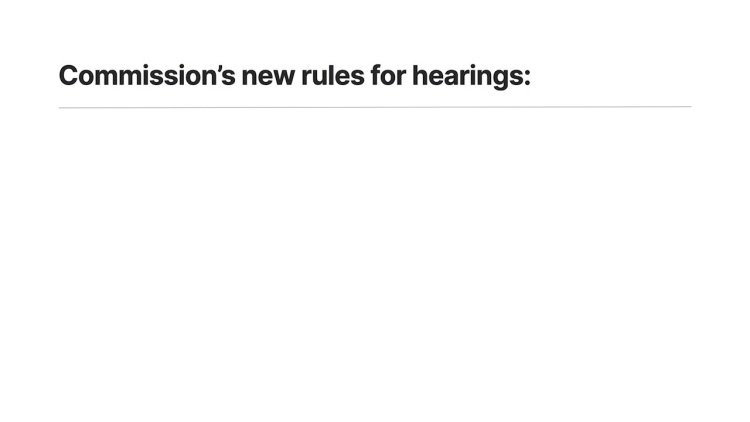Citizens Awareness Network, Inc. v. United States
United States Court of Appeals for the First Circuit
391 F.3d 338 (2004)

- Written by Sean Carroll, JD
Facts
The Atomic Energy Act (AEA) required the Nuclear Regulatory Commission (defendant) to hold a hearing upon the request of any person who may be affected by a grant, amendment, or renewal of a license The AEA did not specify any required nature of the hearing. The commission initially interpreted this hearing requirement as requiring an on-the-record hearing under the Administrative Procedure Act (APA). These proceedings were akin to full court trials with extensive procedures, often taking multiple years to complete. With several licenses about to be up for renewal, the commission issued new rules, finding that license hearings did not need to be on the record. The new hearing rules required fewer procedures, and the proceedings generally would be completed more quickly. Specifically, the rules (1) eliminated the discovery process in lieu of certain mandatory disclosures by parties, and (2) curtailed cross-examination to that which was necessary to the case, subject to the discretion of the presiding officer. Citizens Awareness Network, Inc. (plaintiff) sued the commission, arguing that the AEA required an on-the-record hearing in accordance with the APA.
Rule of Law
Issue
Holding and Reasoning (Selya, J.)
Concurrence (Lipez, J.)
What to do next…
Here's why 907,000 law students have relied on our case briefs:
- Written by law professors and practitioners, not other law students. 47,100 briefs, keyed to 996 casebooks. Top-notch customer support.
- The right amount of information, includes the facts, issues, rule of law, holding and reasoning, and any concurrences and dissents.
- Access in your classes, works on your mobile and tablet. Massive library of related video lessons and high quality multiple-choice questions.
- Easy to use, uniform format for every case brief. Written in plain English, not in legalese. Our briefs summarize and simplify; they don’t just repeat the court’s language.





